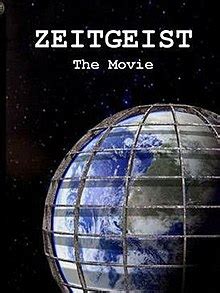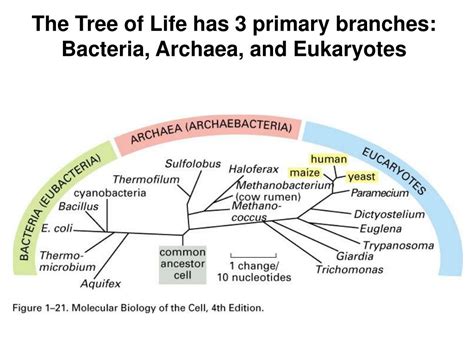The Zeitgeist movie series has become a cultural phenomenon, sparking intense debate and discussion about the very fabric of our society. Created by Peter Joseph, the series aims to challenge conventional wisdom and inspire critical thinking about the world we live in. At its core, the Zeitgeist movement seeks to expose the underlying flaws in our economic, political, and social systems, and to propose alternative solutions that prioritize human well-being and sustainability.
One of the primary concerns addressed by the Zeitgeist series is the concept of scarcity and its relation to economic systems. The films argue that our current monetary-based economy is founded on artificial scarcity, which leads to inequality, poverty, and environmental degradation. By highlighting the abundance of resources on our planet and the inefficiencies of the current system, the series advocates for a shift towards a resource-based economy, where technology and innovation are harnessed to provide for everyone’s needs without the need for money, ownership, or hierarchical control.
A key aspect of the Zeitgeist philosophy is the idea of a global, unified system that transcends national borders and petty squabbles. The series presents a compelling case for the interconnectedness of the world’s problems and the need for a unified, holistic approach to solving them. By emphasizing the shared human experience and the common goals that unite us, the Zeitgeist movement seeks to foster a sense of global citizenship and cooperation, rather than the divisive, competitive mindset that often characterizes our current world.
The Zeitgeist films also delve into the realm of spirituality and the human condition, exploring the nature of consciousness, free will, and the impact of societal conditioning on our perceptions of reality. By drawing on a wide range of sources, from ancient mysticism to modern science, the series offers a profound and thought-provoking examination of the human experience, encouraging viewers to question their assumptions and seek a deeper understanding of the world and their place within it.
One of the most striking aspects of the Zeitgeist series is its use of striking visuals, memorable soundtracks, and persuasive narrative techniques to convey its message. The films are carefully crafted to engage the viewer on multiple levels, from the intellectual to the emotional, making them a powerful tool for inspiring change and motivating individuals to take action. Whether you agree with the movement’s ideology or not, it is undeniable that the Zeitgeist series has become a cultural touchstone, sparking important conversations and challenging people to think differently about the world and their role within it.
As we consider the implications of the Zeitgeist movement, it is essential to acknowledge both the potential benefits and the potential drawbacks of its ideology. On the one hand, a resource-based economy and a global, unified system could bring about unprecedented levels of cooperation, efficiency, and human well-being. On the other hand, such a system would require a radical transformation of our current social, economic, and political structures, which could be fraught with challenges and uncertainties.
To better understand the possibilities and limitations of the Zeitgeist movement, let us examine some specific examples and case studies. For instance, the city of Barcelona has implemented a number of innovative, citizen-led initiatives that prioritize social and environmental well-being over economic growth. Similarly, the concept of a universal basic income has been experimented with in several countries, with promising results. By analyzing these examples and others like them, we can gain a deeper understanding of the potential for a resource-based economy and a global, unified system to create positive change.
What is the main goal of the Zeitgeist movement?
+The main goal of the Zeitgeist movement is to create a global, sustainable, and equitable society, where technology and resources are managed to provide for everyone's needs, without the need for money, ownership, or hierarchical control.
How does the Zeitgeist series propose to achieve its goals?
+The Zeitgeist series proposes to achieve its goals through a combination of education, activism, and community building. By raising awareness about the flaws in our current system and promoting a new, resource-based economy, the movement seeks to inspire individuals to work together towards a common vision of a better world.
What are some potential benefits of a resource-based economy?
+Some potential benefits of a resource-based economy include the elimination of poverty and hunger, the reduction of waste and pollution, and the promotion of social and environmental well-being. By prioritizing human needs over economic growth, a resource-based economy could bring about unprecedented levels of cooperation, efficiency, and human well-being.
In conclusion, the Zeitgeist movie series offers a thought-provoking and deeply troubling examination of the world we live in. By challenging our assumptions and encouraging us to think differently, the series inspires us to work towards a better future, one that prioritizes human well-being, sustainability, and cooperation. While the movement’s ideology may not be without its flaws and challenges, it is undeniable that the Zeitgeist series has become a cultural phenomenon, sparking important conversations and motivating individuals to take action.
As we move forward, it is essential to continue the conversation started by the Zeitgeist series. By engaging with the ideas and concepts presented in the films, and by working together to build a more just and equitable society, we can create a brighter future for all. The Zeitgeist movement’s emphasis on critical thinking, media literacy, and community building provides a powerful framework for inspiring change and motivating individuals to take action. By embracing this framework and working together towards a common vision, we can create a world that is more just, more equitable, and more sustainable for all.



